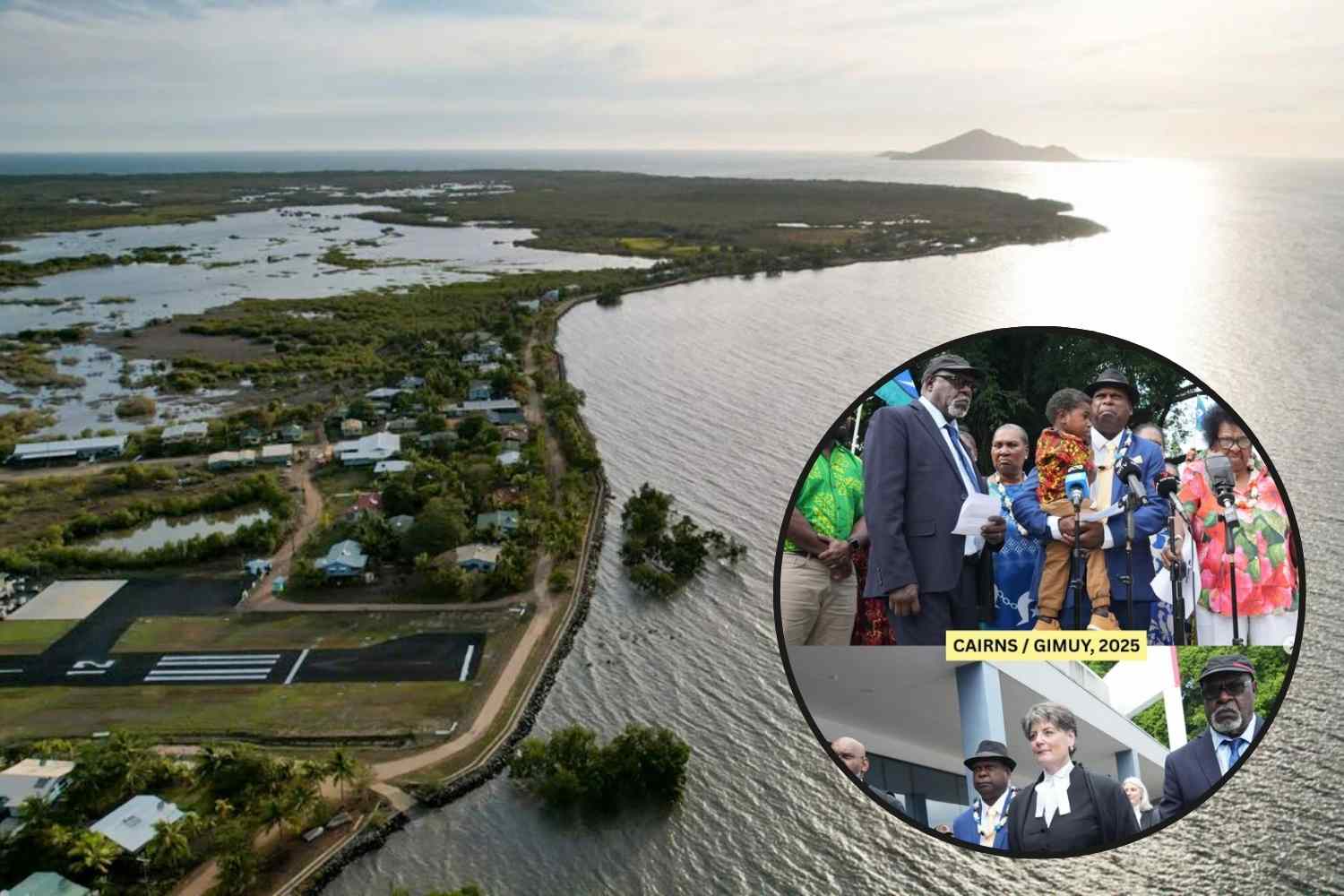Australia's Federal Court ruled that the government has no duty of care to protect Torres Strait Islanders from climate change, in a decision with sweeping legal and moral implications.

@TSIRC
A long fight, and a painful ruling
After years of anticipation, a long-awaited verdict landed on Tuesday, July 15, from Australia’s Federal Court: elders Pabai Pabai and Paul Kabai, representing the residents of Boigu and Saibai Islands in the Torres Strait, lost their case against the Commonwealth government. The court’s reasoning? According to Justice Michael Wigney, the Australian executive has “no legal duty of care” toward their community in regard to the climate crisis.
This wasn’t just a lawsuit. It was a plea for legal recognition—not simply of harm, but of responsibility. Filed in 2021, the case aimed to set a precedent: that the state should be held accountable for protecting Indigenous communities from the devastating impacts of climate change. These communities are on the literal frontlines: the Torres Strait Islands lie between northern Australia and Papua New Guinea, and they’re already being swallowed by the rising sea.
Land, culture, and loss
The lawsuit documented the grim reality: land subsidence, saltwater flooding, and coastal erosion are already affecting the islands’ livability. Ancestral burial sites have been irreparably damaged. Croplands are being lost. It’s not just about physical survival—it’s about cultural survival.
The elders asked for two things. First, that the Australian government adopt climate targets aligned with the +1.5°C limit established by the Paris Agreement. Second, that it fund coastal protection infrastructure—seawalls, primarily. But according to the court, such demands fall under “political decision-making”, beyond the purview of a judge.
“My heart is broken”: the cost of defeat
“I thought the decision would be in our favor, and I’m in shock,” Paul Kabai told Al Jazeera, as quoted by AFP. “What do we tell our families now?” His co-plaintiff, Pabai Pabai, was equally devastated: “My heart is broken for my family and my community.”
This isn’t just a courtroom loss. It’s the collapse of a years-long effort to assert the right not only to remain on their land but to continue practicing Ailan Kastom, the age-old cultural traditions of the Torres Strait Islanders. If the islands become uninhabitable, forced migration won’t just displace people—it will sever their connection to land, history, and heritage.
When law meets politics, justice stalls
Interestingly, even as Justice Wigney acknowledged that the people of the Torres Strait Islands “face a bleak future” due to climate change, he insisted that it’s not the role of a judge to compel governments to cut emissions based on “the best available science.” That, he said, would amount to interference in complex political processes.
But here’s where the contradiction bites: Australia is a signatory to the Paris Agreement, which explicitly calls for action “based on the best science.” According to the plaintiffs’ legal team, this creates not only a moral obligation but a legal one, which courts ought to consider.
A missed turning point for australian law
Many saw this case as a potential milestone, much like the landmark Mabo decision of 1992, which for the first time recognized native title for Aboriginal Australians. The Torres Strait case aimed for a similar legal breakthrough—this time, for climate-linked cultural loss.
But once again, Australian jurisprudence pulled back. Courts continue to draw a blurry line between politics and law, often using that vagueness to sidestep decisions that could carry binding consequences. The ruling isn’t just about what the law says—it’s about what it refuses to say.
What remains after the loss
For advocates of climate justice and Indigenous rights, the decision is a setback. But it’s not the end. Around the world, an increasing number of courts are starting to recognize that governments do have a duty to protect citizens from the ravages of climate change.
As one analysis in The Conversation put it, “it’s only a matter of time before the law catches up.” Climate damage is no longer theoretical—it’s already here. And in places like the Torres Strait, the boundary between environmental justice and social justice has effectively disappeared.
The message from this ruling is clear: Australian law isn’t ready to confront the full scope of the climate emergency. But much like the tide, the climate crisis won’t wait for legal systems to catch up. And when the waters rise again, they won’t knock—they’ll crash on the doors of justice, louder and harder than before.
